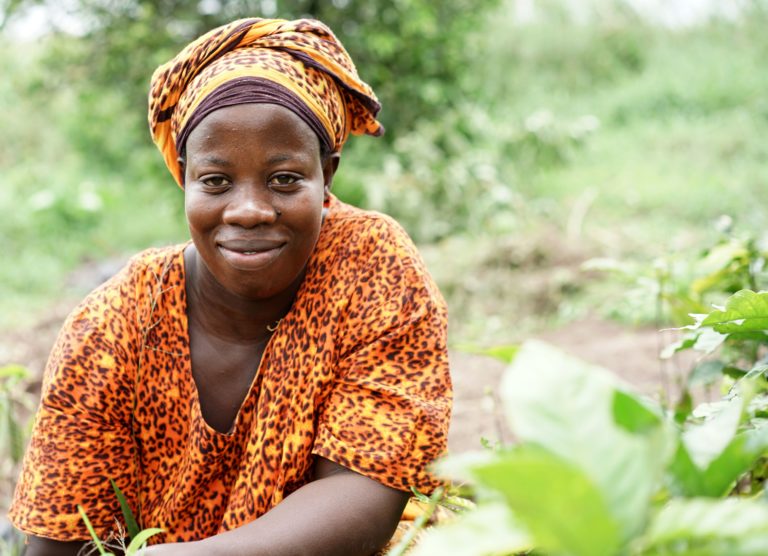In Their Voices: The Ripple Effect of Sexual Health & Rights

Lake Victoria is our planet’s largest tropical lake—stretching for more than 200 miles. On its shores, 8 out of 10 people rely on fishing and agriculture for their survival and income. But families are struggling.
People here are among the poorest and most food insecure in all of East Africa. To make matters worse, overfishing and environmental degradation have contributed to a steep drop in the native fish population—from more than 80% of the lake’s fish biomass to less than 1%.
Could access to sexual and reproductive health services—including contraception—turn this around?
At Pathfinder, we say yes! Access to sexual and reproductive health services mean women can choose if, when, and how many children they will have. It means they can decide their own future. But it’s also much more than that. Ensuring a woman’s access to sexual and reproductive health care sets off a chain reaction, and the benefits extend beyond just her and her family.
When you combine reproductive health, management of natural resources, and economic opportunities, the results are…well, we’ll let them speak for themselves.
Improved Health
Ann and Henry Okello of Kenya’s Rachuonyo North Sub-county, had two children close together and were struggling to provide for their family.
“We encountered problems as we could not manage to control the age difference between our first born and second born,” remembers Ann.
They had learned about contraception from their community health volunteer and knew it was right for them.
“My eldest daughter is now in class one and my son is in nursery school,” says Henry. “My children are healthy and their mom, too, is very healthy because of the spacing we agreed to take.”
With contraception, Ann can plan her pregnancies—and her life. She can ensure the health of her children—and herself.
Economic Empowerment
At 15, Fausta gave birth to her first child. By 23, she had four. Like many girls on Uganda’s Bussi island, she felt pressure to marry young and grow her family fast.
She took part in integrated educational sessions on contraception, sustainable fishing and agriculture practices, nutrition, and sanitation. Soon after, she joined other women in the community to form a nursery co-operative—to earn an income and create a better future for her family.
“I’ve learned that our lake is our main resource, and we should use it sparingly…not to rely on fishing as our only source of income,” she says. “And I’ve learned the truth about family planning.”
She brought this knowledge home to her husband, Paul. Together, they decided contraception was an important tool as they couldn’t afford another child.
“We have been able to earn money,” said Fausta. “And more income changes everything. My husband and I were able to buy a plot of land. We built and own our first home. We can take better care of our children. Afford better food.”
Gender Equality
Margaret and Tadeo are proud model household owners. At their home on Bussi island, they have a kitchen with a clean cook stove; they planted trees on their land; they installed a latrine, with a proper washing facility; and Margaret began using contraception.
They are part of a growing movement across Eastern Africa in which individuals and couples volunteer to serve as role models and community educators on a suite of high-impact development interventions.”
“Model households are important because you are an example to the community,” says Tadeo. “You are respected.”
As a package, these integrated interventions are more than just a sum of their parts. Model households encourage healthy behaviors, build equality in the home, and promote climate change adaptation.
Together, Margaret and Tadeo are responsible for upholding the values of a model household. They are in it together and working as a team which is shifting the gender norms in their home.
“Our relationship has greatly changed and improved,” says Margaret. “Our home makes us happy…It gives us a sense of pride, and a sense of responsibility… We help each other.”
Environmental Sustainability
On Uganda’s Jaguzi island, Wilber makes his living as a farmer. Previously, he was an active fisherman and head of his community’s beach management unit. They’d watch as catches decreased and entire species of fish disappeared. When he received training on sustainable fishing practices, he learned the right time to catch certain fish, when to let the young fish grow…and he learned about contraception.
“[This project] has shown us how our environment and health work together,” says Wilber. “That poor management of one can have disastrous effects on the other. As fishermen, we used to have many, many children, without thinking about the effects. But today, we care about spacing our children.”
For Wilber, this has been absolutely life changing: “Right now, what I am seeing and what our future promises—it is so much better. We are awakened and cannot go back to sleep.”


